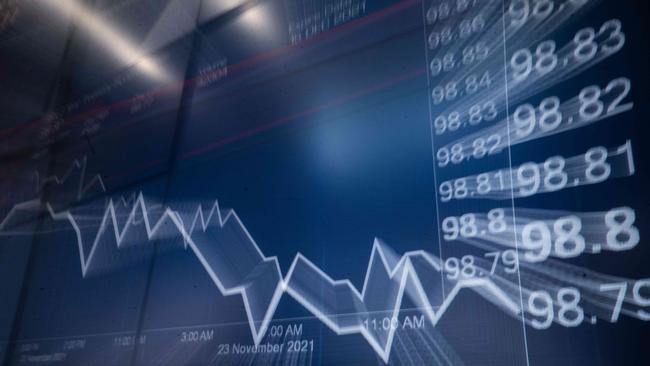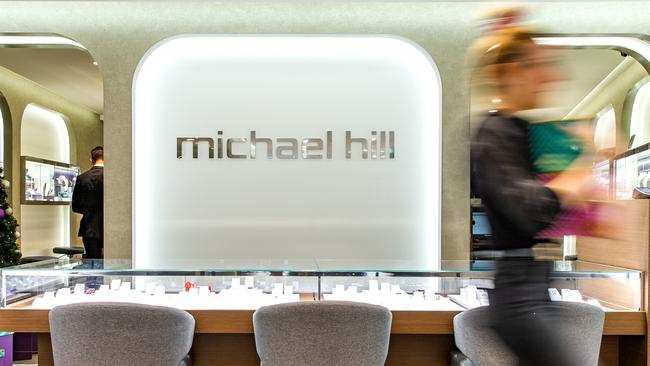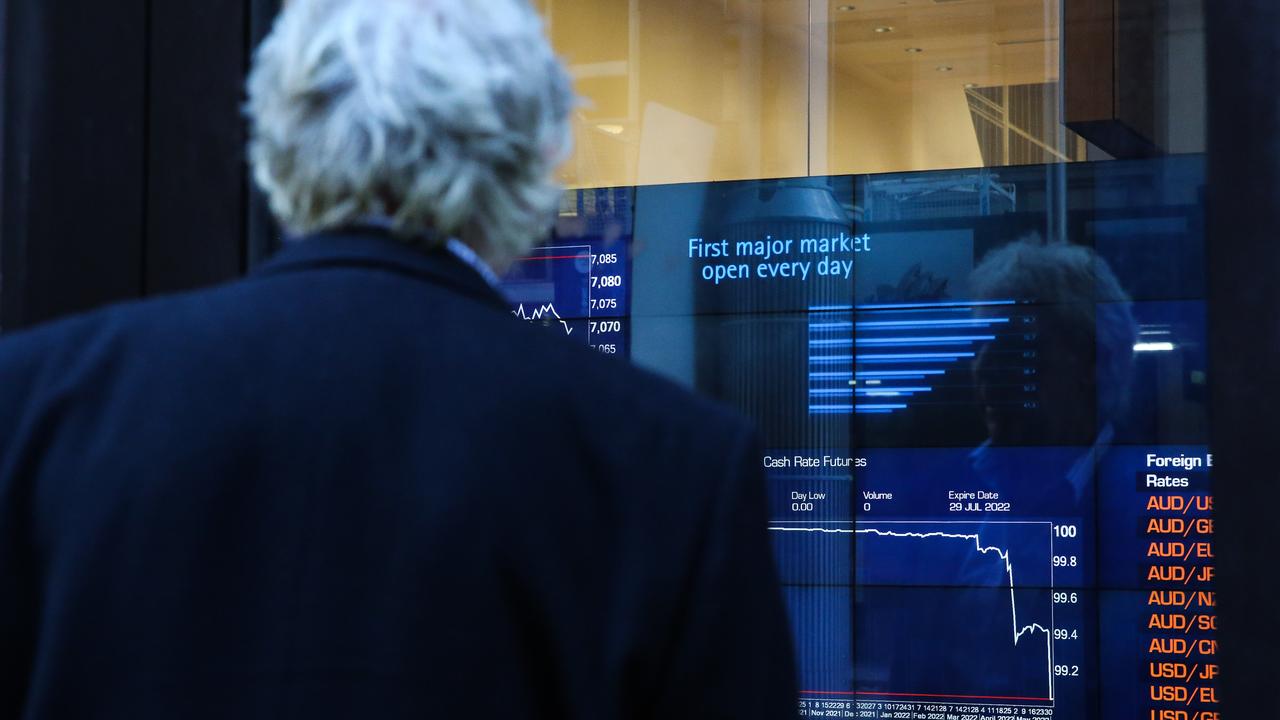Hedge fund hit: Bears bet the house on Omicron trade
Hedge funds haven’t been able to win a trick and it looks like the latest bet on Covid might let them down as well.

Hedge funds haven’t been able to win a trick in the past two years and it looks like even the Omicron trade might let them down as well.
Big bets on a retail and travel wipe-out with Covid’s latest wave are yet to materialise.
During normal markets, hedge funds are the kings of the universe. They are high-octane traders and promise windfalls by swimming against the tide and betting on a drop in share price.
Hedge fund managers scour all corners of the stockmarket looking for hairline cracks in corporate strategies, assumptions and forecasts. The funds then exploit these minute faultlines for a large gain. The targets might be big – such as the fabled widow trade on Australian banks – or the smallest of biotechs. Everyone is fair game.

This time around the markets are fighting back from the pain inflicted by short sellers since the global financial crisis. A flood of liquidity from ultra-low interest rates and pump priming by central banks has smashed funds.
Latest quarterly figures from Australian funds tracker Mercer shows third-quarter returns of Australian hedge funds underperformed sleepy long-only investment funds by 1.3 per cent over the past year. Even green funds vastly outperformed hedge funds. For the fees being paid, investors would have been better off bundling their cash in an index fund and riding the market. The figures for the December quarter to be released shortly are expected to be even worse for hedge funds as they prepare to rule off books on Friday.

The closest thing to a barometer for short selling is the BetaShares Australian Equities BEAR fund, which is negatively correlated to moves in the benchmark S&P/ASX 200. So far this calendar year the BEAR fund is down 17.1 per cent, suggesting bearish bets on the broader market are deeply out of the money. Over two years, the BEAR fund is down a hefty 25 per cent.
If the post-Christmas surge in offshore markets continues, it’s going to be a longer, harder road back for hedge funds.
High-profile hedge fund Regal Investments for one has slightly reduced its short equity exposure through Covid trimming the short allocation of its flagship fund from 7 per cent to 5 per cent currently. Still, in recent months Regal has seen some bearish bets across biotech and travel services shares deliver positive results.
Another to have come under pressure through the pandemic is VGI Partners, which this month saw its shares hit an all-time low of $4.06. VGI is now betting that the huge spend on goods during the pandemic will snap back towards services and is positioning its flagship fund around this.
Institutional broker Richard Coppleson of Bell Potter has done some work on shorted stocks. His research looked at the repeat targets of the hedge funds over the past four years. Remember hedge funds bet on, and profit from, a drop in a security’s price. They borrow shares they don’t own and sell them short in the hope their price will go down. They then buy the shares at the lower price and pocket the difference.

Coppleson found that while 2018 was a good year for hedge funds, the years 2019 and 2020 (Covid) were bad years.
However, this year was more mixed, he concludes. The top 25 stocks that were shorted this year were on average down 5.5 per cent, compared to the S&P/ASX 200, which is now up 12.35 per cent year to date after hitting a four-month high on Wednesday.
The big winner for short sellers has been biotech Mesoblast, which is down 40 per cent after its prospective drug candidates fell short this year. Heading into 2022, Mesoblast was the third most shorted stock on the ASX.
High-stakes
One trade that has defied the hedge funds this year is online travel play Webjet. Going into 2021 it was the most shorted stock. Even today it remains in the top 10 of shorted stocks, but shares are up 3 per cent so far this year – a bad sign for funds.
Heading into 2022 the Australian shares that have the biggest short bets are Flight Centre (14.4 per cent of its shares held short); Kirkland Lake Gold (14.1 per cent); Kogan.com (10.5 per cent); and Redbubble (9.8 per cent).
Also in the top 10 is Mesoblast, buy now, pay later Zip Co, Webjet and BHP.
Coppleson found the stocks over the past four years that have defied the short sellers were Dominos; Harvey Norman; JB Hi-Fi; Metcash; Myer and Super Retail. In other words, these are the stocks that have stayed among the top 25 shorted stocks but didn’t suffer a share price collapse.
The stocks that have consistently delivered on big bearish bets the over the past four years are A2 Milk, Galaxy Resources; Ingham’s; Nearmap; and Nufarm, Coppleson found.
However, today’s bearish bets on travel and retail might not be going to plan.
Even with the short-term disruption of Omicron, people have shown a willingness to travel as long as borders remain open. Qantas is targeting 100 per cent domestic capacity by February.
Going into Christmas, the savings ratio among Australians was near an all-time high of 19.8 per cent, while other strong signs for retailers include the fast-growing jobs market. Official jobs figures for December are scheduled on January 20 with suggestions the economy can build on the record 366,100 jobs created in November.
This is where listed jeweller Michael Hill International added to the pain of hedge funds.
Michael Hill, which rises and falls on consumer confidence, is often the quickest off the mark on sales updates for the all-critical Christmas trading period. Early on Wednesday it issued a profit upgrade after crunching sales numbers for the six months up until Boxing Day. It called out sales growth and profit margin expansion – retailer code for less discounting.
Other retailers to watch in coming weeks with their updates include Kathmandu, Kogan, Super Retail and Shaver Shop.
Retailers such as JB Hi-Fi or Myer generally keep their numbers closer to the release of profit results.

The key for long-term funds as well as hedge funds is whether Omicron’s rapid spread here and around the world will push the global economy back into recession. For now economists are erring towards a glass half full outlook with vaccines and low hospitalisation rates helping them to keep the faith.
Platinum Asset Management for one, which looks at international shares, has been building up short position in fast growing tech stocks. It has also taken some short positions on the Nasdaq index.
In a recent client update Platinum said the case for being short expensive tech stocks was compelling.
It noted that in many tech stocks, not only are revenues growing quickly, but losses are growing almost as quickly.
These ‘fast-growing loss makers’ face a serious risk as their valuations are based on profits that are often five or more years away and hence their share prices are much more sensitive to long-term interest rates.
johnstone@theaustralian.com.au



